Elolo Bosoka finds value in the ordinary and the everyday
by Kwame AidooOct 26, 2024
•make your fridays matter with a well-read weekend
by Kwame AidooPublished on : Aug 03, 2024
Jojo Abdallah’s solo exhibition, PSY-TECH, the artist’s third show at the Ghana National Museum, is curated by artist and curator Robin Riskin. Gathering recent and archival paintings and mixed media works, the exhibition is produced by Compound House Gallery spearheaded by Nuna Doe, in collaboration with the Ghana Museums and Monuments Board and the Accra Psychiatric Hospital with support from Ato Annan of Foundation for Contemporary Art-Ghana. At the Accra Psychiatric Hospital in Adabraka, Abdallah has been involved in a loose patient-artist-in-residence position for the past 45 years. Here, aside from his independent fine art practice, he is in charge of labelling bedsheets, saucepans and signboards.
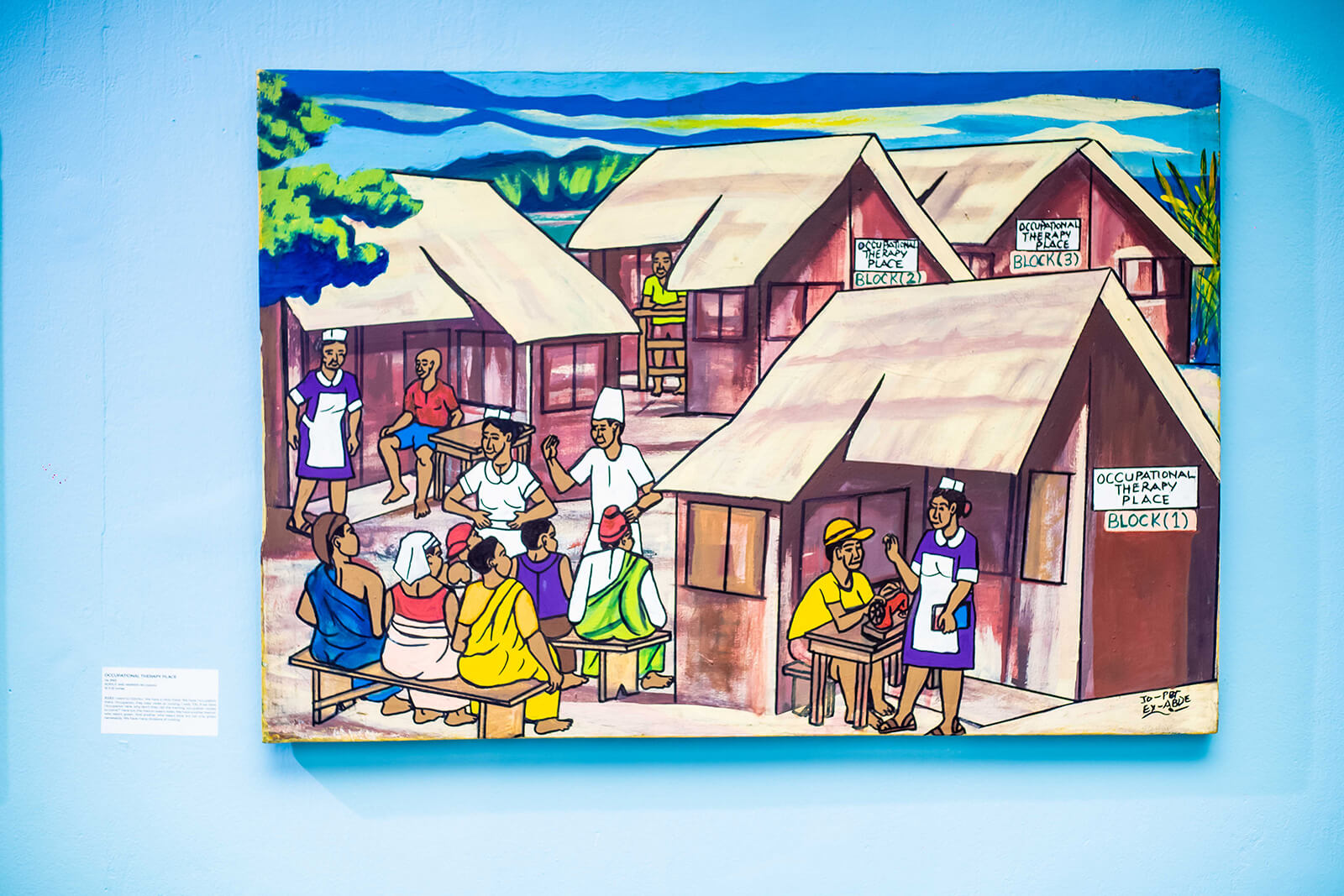
Born around 1963 to Ewe-Lebanese and Akan parents in Accra, Ghana, Abdallah trained in arts, crafts and graphics at Ghana Secondary Technical School, Takoradi. It is not clear whether he furthered his education in fine art at the University of Science and Technology, Kumasi or by teaching himself. Since his early years, Abdallah has employed art as a guide, an educational tool and for both real and imagined storytelling. For over four decades, his œuvre has portrayed functions, rites, food and communal occasions in Ghanaian culture. Additionally, he focuses on mental health, the built environment, imagined narratives of science-permeated folklore, syncretic spirituality and colonial meeting points.
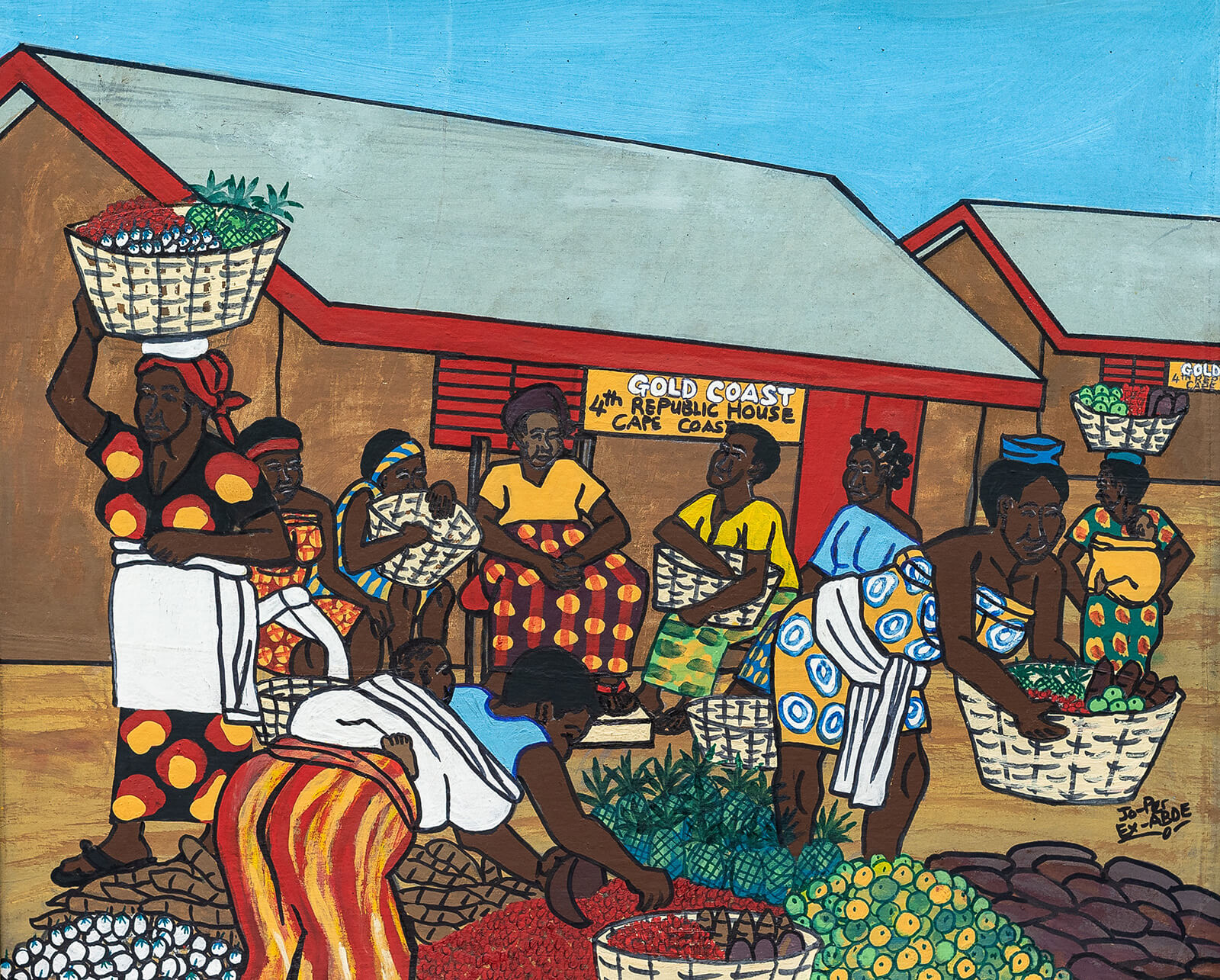
At the Accra Psychiatric Hospital, Abdallah has been more than just a passive spectator to the built environment’s evolution, socio-politics and the communal poetics around him. The artist prefers to work in isolation and often uses marker pens to make clear outlines of his figures. The figures are filled with life by fleshing them out with acrylic, mainly on obroni wawu (imported second hand cloth) over wooden boards. He often makes his own frames with repurposed wood, or occasionally paper mâché. Abdallah’s works like Ga’s First Awakening in the Gold Coast and Korle-Bu Hospital – both made around 2023 with acrylic and marker on canvas, harness mediums and connections to explore multiple phases and universes of culture and spatial identity.
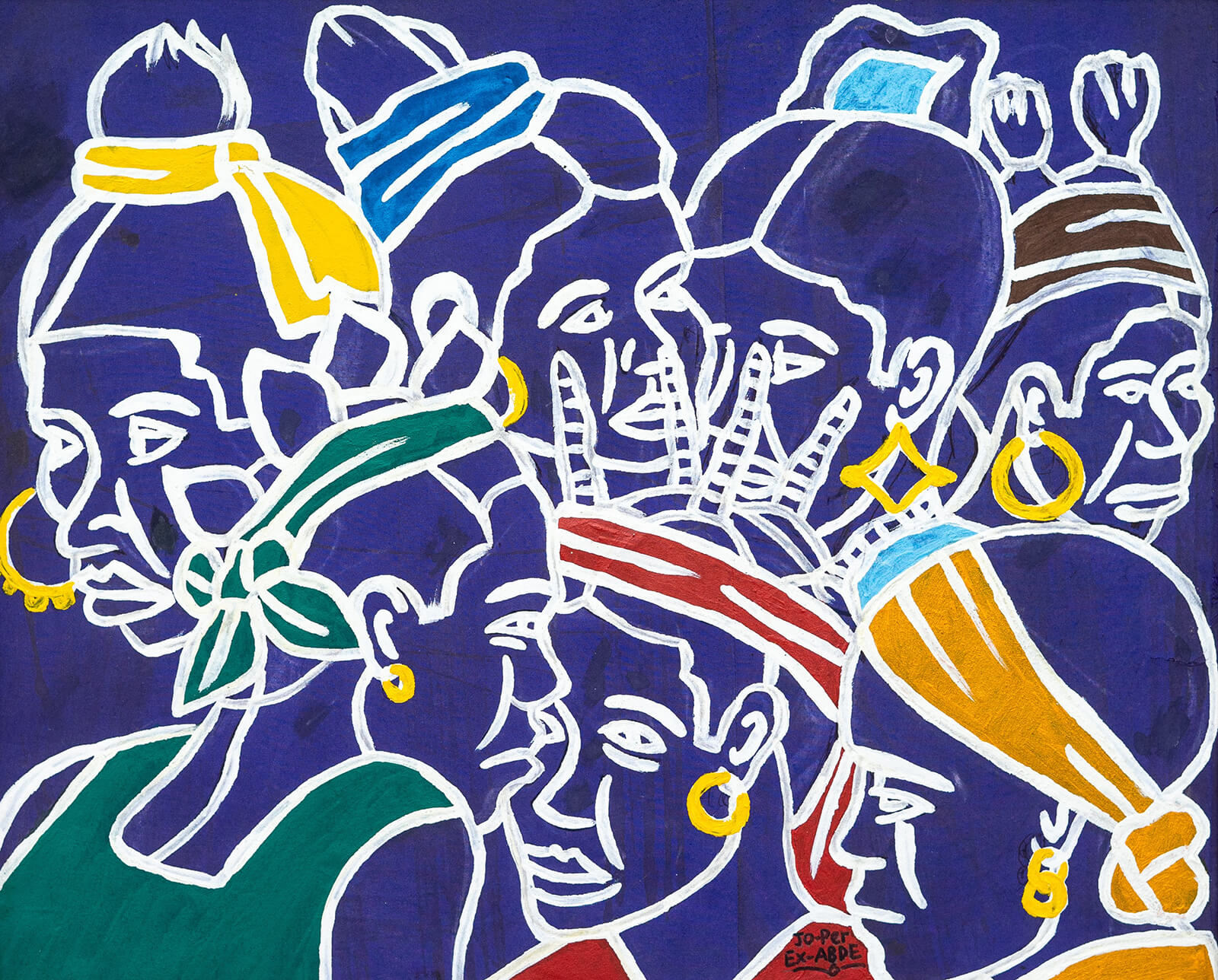
In this exhibition, Abdallah’s paintings are enhanced by captions created from statements by the artist, a video documentary by Carl Segbefia and Mel Arthur, a sound collage piece; and a catalogue – which is a mix of directly translated oral, textual and visual languages featuring medical practitioner Dr. Paakow, writer Moshood, musician Worlasi and more. Furthermore, the exhibition indirectly brings the contemporary work of Abdallah in dialogue with the Ghana National Museum’s permanent collection.
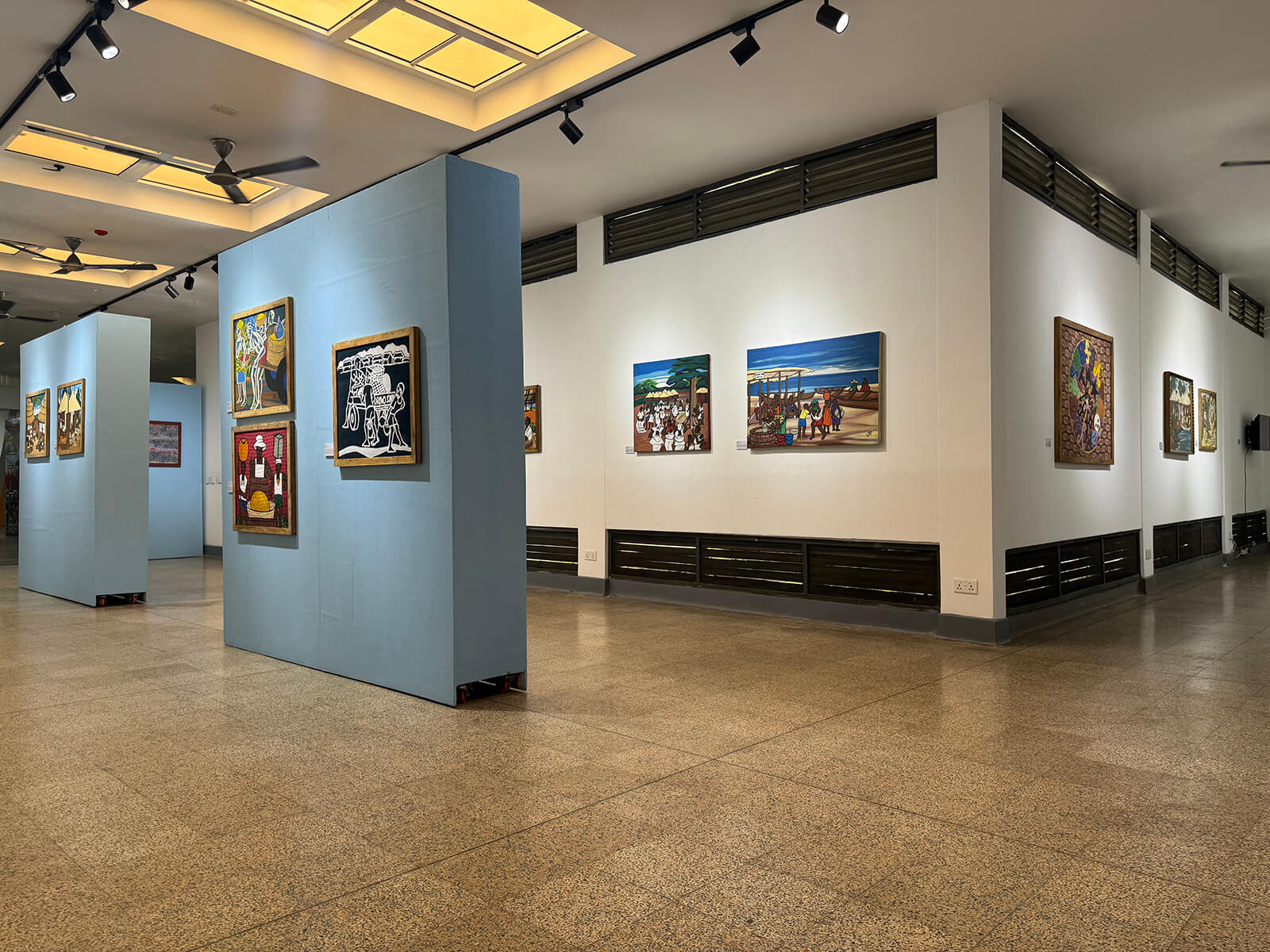
“I’m connecting the work to not only contemporary artists and contemporary philosophies, but to ecological interactions, environments and processes of transformation, and to ancient spiritual healing and divination – communal practices,” curator Robin Riskin says. Riskin, who is from New York but has lived in Ghana for the past 12 years, besides other parts of West Africa, seeks to critically question and reimagine curatorial forms.
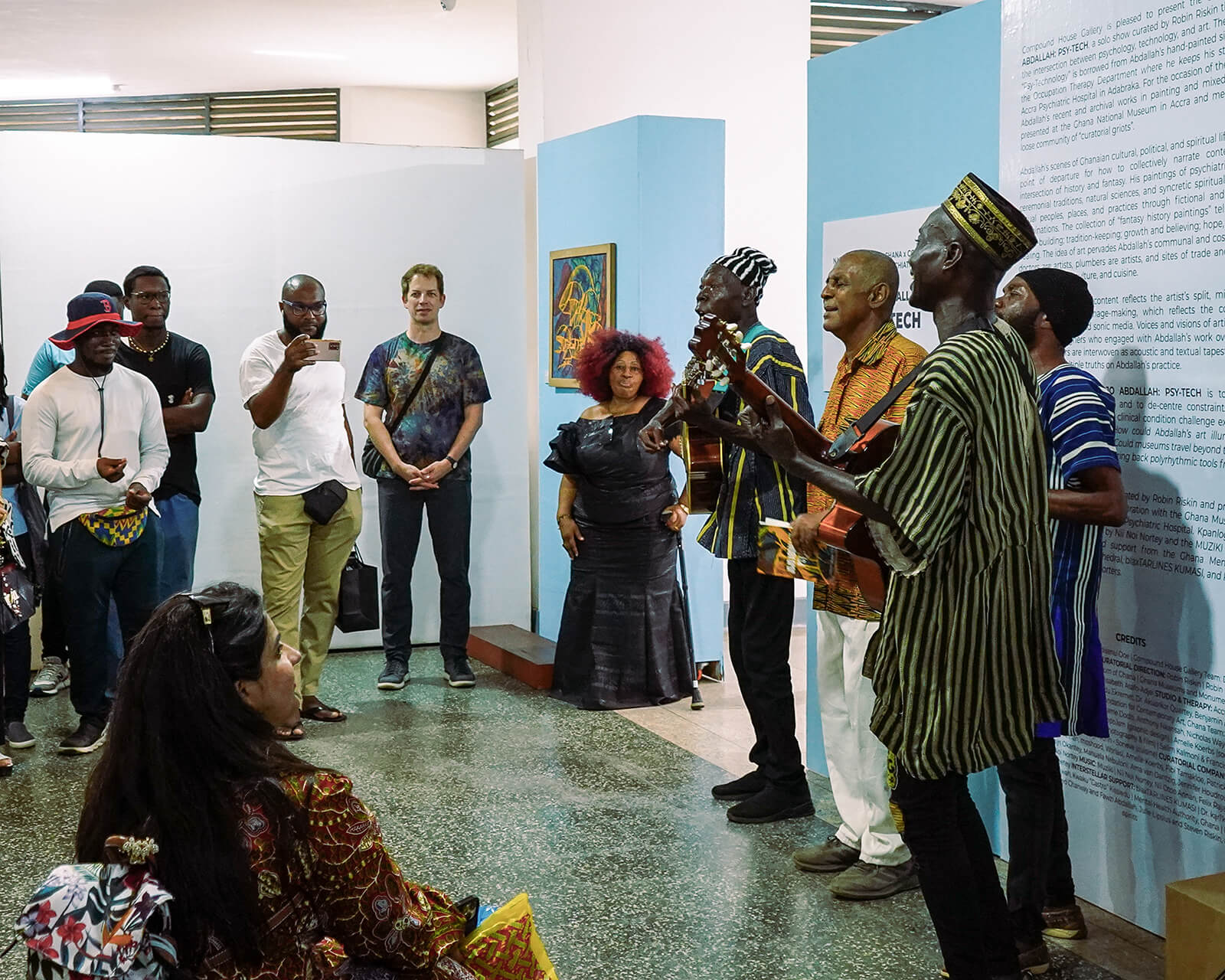
I’m connecting the work to not only contemporary artists and contemporary philosophies, but to ecological interactions, environments and processes of transformation; and to ancient spiritual healing and divination – communal practices – Robin Riskin
Riskin cites the artist-intellectual Karî'kachä Seid'ou’s teaching as influential to her practice, which she describes as “schizophonic curating”. It draws together ideas from philosopher Walter Benjamin, ethnomusicologist Steven Feld and communal, cosmic, spiritual and musical practices.
Abdallah’s work does not only give a conspicuous insight into mental health but also into institutions and frameworks that deal with mental health issues. His reflective paintings of old architecture from Accra Psychiatric Hospital are a reminder of its colonial origins (formerly the Lunatic Asylum). Before colonisation, mental illness was treated with herbal medicine and spiritual rites. Colonial rule institutionalised mentally ill patients. The then governor, Sir Edward Griffiths, in 1888 (three years after the Berlin Conference), converted the old High Court of Victoria Borg into a mental health institution. Untrained wardens looked after a mix of mentally ill patients and criminals while offering no medical treatment. In 1906, about 110 patients were admitted into a new hospital at Adabraka – the present-day Accra Psychiatric Hospital, under the charge of 16 untrained attendants.
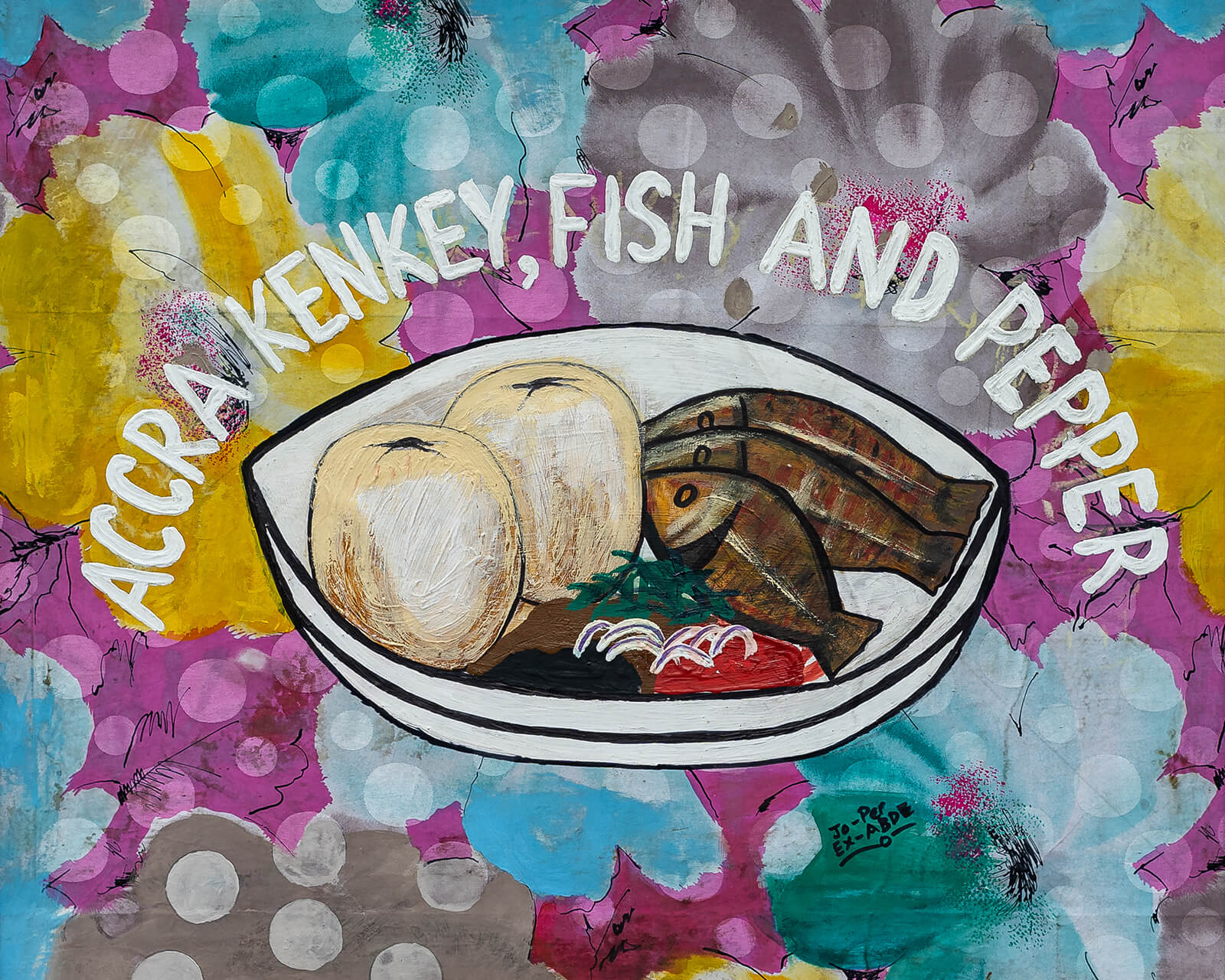
Playing the role of mediator, Riskin has collaborated with the artist for over 5 years to express the unbounded ingress to alternate realms and ways of knowing. The curator’s goal is not to pigeonhole Abdallah’s clinical experience but rather to platform him as an orator of culture, architecture and ideas. Many artists have struggled with mental health issues over time and they can be observant questioners of structures, occasions and spaces around and beyond us. “I put my heart and my soul into my work,” Dutch artist Van Gogh once wrote, “and lost my mind in the process.”
For Abdallah, art is a way of living and our livelihoods are only a part of the experience of life. Though sometimes you can almost feel the debilitating weight of the world in his voice, at other times, especially when he talks about his art, his eyelids lower as if he’s transported elsewhere. The artist’s work seems to invite a community of voices to collectively tell the story, yet it is born from solitariness.
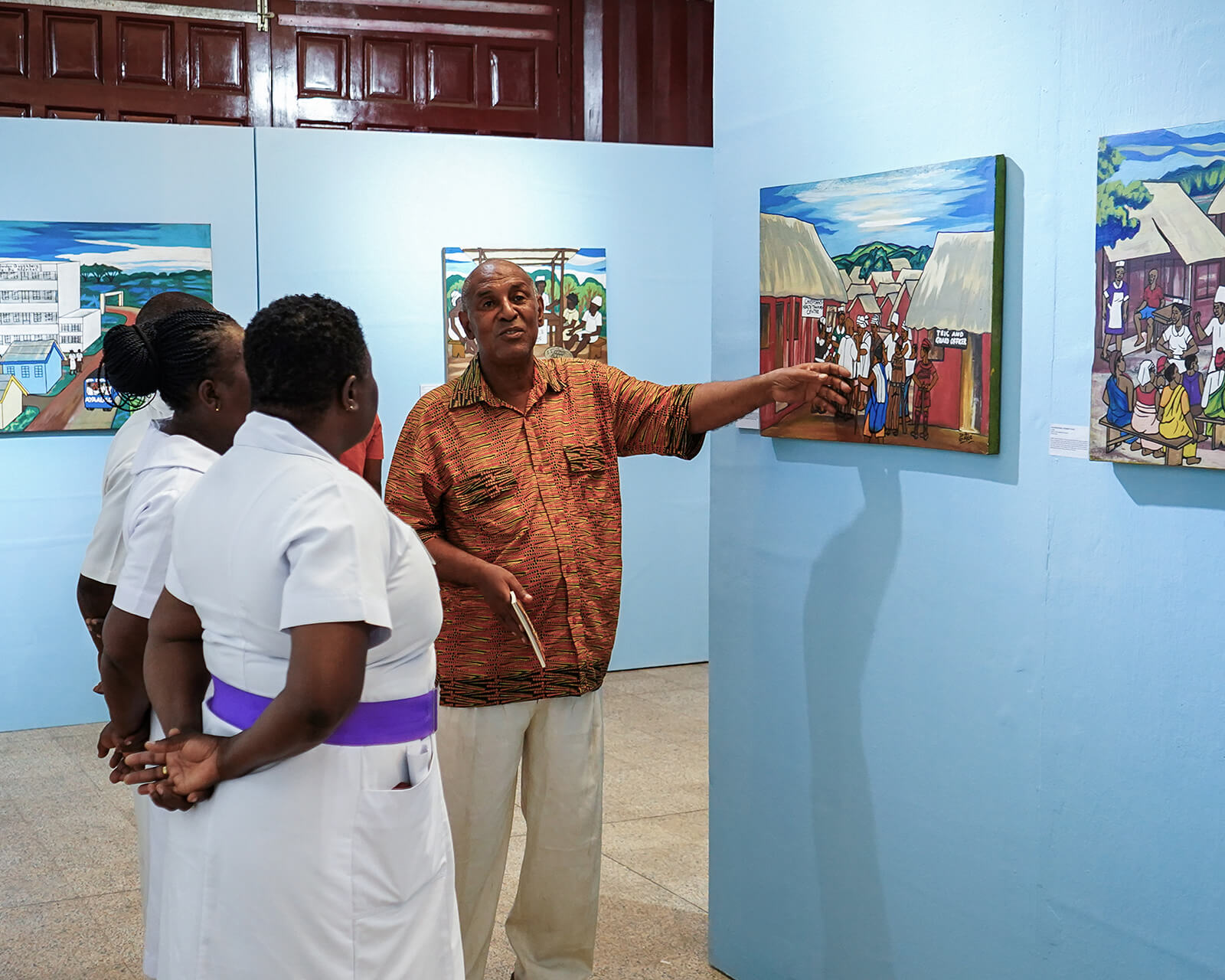
Abdallah’s paintings of psychiatric hospitals, ceremonial traditions, natural sciences and syncretic spiritualities extend from the people, places and practices to the political salience of art itself. The artist has created a generous volume of work with meticulous detail that almost gives the audience a mystical, meditative experience. Conceptualised and operationalised by an individual thriving in a mental health institution for society at large, Abdallah’s work is where our histories meet the contemporary with the sanguine thread of healing and the spirit of survival.
by Maanav Jalan Oct 14, 2025
Nigerian modernism, a ‘suitcase project’ of Asian diasporic art and a Colomboscope exhibition give international context to the city’s biggest art week.
by Shaunak Mahbubani Oct 13, 2025
Collective practices and live acts shine in across, with, nearby convened by Ravi Agarwal, Adania Shibli and Bergen School of Architecture.
by Srishti Ojha Oct 10, 2025
Directed by Shashanka ‘Bob’ Chaturvedi with creative direction by Swati Bhattacharya, the short film models intergenerational conversations on sexuality, contraception and consent.
by Asian Paints Oct 08, 2025
Forty Kolkata taxis became travelling archives as Asian Paints celebrates four decades of Sharad Shamman through colour, craft and cultural memory.
 surprise me!
surprise me!
make your fridays matter
SUBSCRIBEEnter your details to sign in
Don’t have an account?
Sign upOr you can sign in with
a single account for all
STIR platforms
All your bookmarks will be available across all your devices.
Stay STIRred
Already have an account?
Sign inOr you can sign up with
Tap on things that interests you.
Select the Conversation Category you would like to watch
Please enter your details and click submit.
Enter the 6-digit code sent at
Verification link sent to check your inbox or spam folder to complete sign up process



by Kwame Aidoo | Published on : Aug 03, 2024
What do you think?